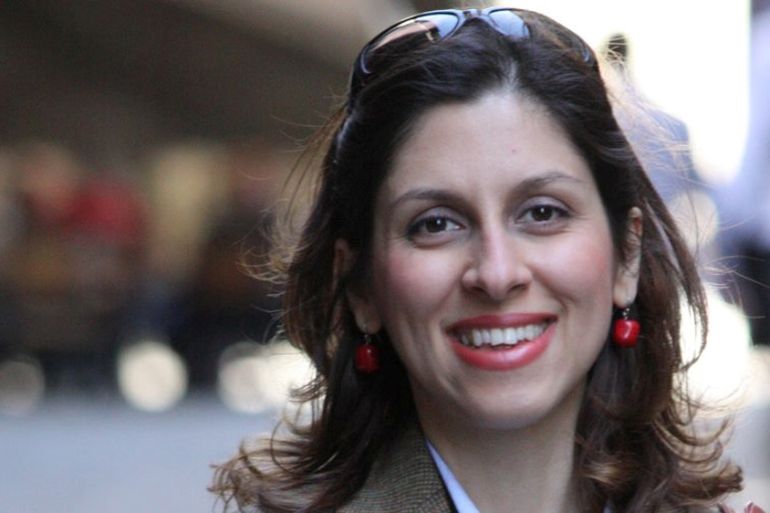UK grants diplomatic protection for British-Iranian woman
Nazanin Zaghari-Ratcliffe has been imprisoned in Iran for nearly three years on espionage accusations.

The UK government has ramped up efforts to protect a British-Iranian woman imprisoned in Iran for nearly three years by granting her diplomatic protection.
The move pm Friday followed allegations that Nazanin Zaghari-Ratcliffe had received insufficient medical care and raised her case from a consular matter to the level of a dispute between two states, meaning that an injury to her would now be considered an injury to the UK.
The Foreign and Commonwealth Office (FCO) said in a video statement that the UK was formally asserting that Iran had failed to meet its international obligations in its treatment of Zaghari-Ratcliffe.
Iran rejected the exceptional decision, saying it “contravened international law”.
“Governments may only exercise such protection for own nationals,” Hamid Baeidinejad, Iran’s ambassador to the UK said in a tweet on Friday.
“As the UK government is acutely aware, Iran does not recognise dual nationality. Irrespective of UK residency. Ms Zaghari thus remains Iranian,” he said.
UK Govt's extension of diplomatic protection to Ms Zaghari contravenes int'l law. Govts may only exercise such protection for own nationals. As UK Govt is acutely aware, Iran does not recognize dual nationality. Irrespective of UK residency, Ms Zaghari thus remains Iranian.
— Hamid Baeidinejad (@baeidinejad) March 7, 2019
Zaghari-Ratcliffe was arrested in April 2016 at Tehran’s Imam Khomeini airport while travelling with her then-22-month-old daughter on charges of plotting against the Iranian government.
The 40-year-old, who had been working with the Thomson Reuters Foundation, said she was in Iran visiting family and has consistently denied all charges against her.
She is currently serving a five-year jail sentence in Tehran.
‘Not a magic wand’
Friday’s move was welcomed by Zaghari-Ratcliffe’s husband, Richard Ratcliffe, who has become a prominent voice in the campaign for his wife’s freedom.
He told BBC radio on Friday that getting a doctor to provide urgent medical care to Zaghari-Ratcliffe was a top priority.
“A couple of months ago she went on hunger strike because she wasn’t getting any treatment and was promised it but it didn’t happen,” Ratcliffe said.
Concerns first emerged about Zaghari-Ratcliffe’s health after it deteriorated following a previous hunger strike in 2016 and intensified when lumps were found in her breasts in late 2017.
In August 2018, Zaghari-Ratcliffe was granted a temporary three-day release from prison.
My statement on exercising diplomatic protection for Nazanin Zaghari-Ratcliffe. #FreeNazanin pic.twitter.com/xP7Oq2fuL3
— Jeremy Hunt (@Jeremy_Hunt) March 7, 2019
UK Foreign Secretary Jeremy Hunt has warned that diplomatic protection is not a cure-all and has repeated his calls for Iran to release Zaghari-Ratcliffe.
“It’s not a magic wand, it’s not going to solve things overnight but it does create a different legal and political context,” he said.
“My decision is an important diplomatic step, which signals to Tehran that its behaviour is totally wrong … No government should use innocent individuals as pawns for diplomatic leverage”.
The UK government has long been seeking Zaghari-Ratcliffe’s release without success, placing additional strain on British-Iranian relations.